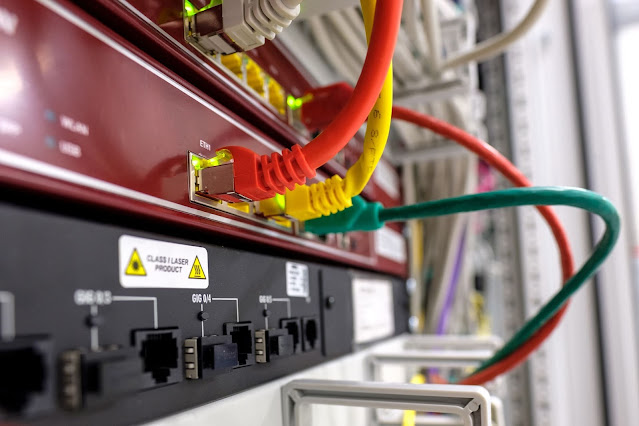 |
Because of all the risks associated with using the internet, VPNs are already a common choice for consumers.
This is true for both typical individual users and organizations.
Those who have previously utilized VPN services may have seen the OpenVPN and IPSec settings. You have to choose the appropriate protocol each time you wish to utilize a VPN.
Some VPN companies even give their customers access to a list of protocols. The three most popular protocols on that list are PPTP, IPSec, and OpenVPN.
The protocol determines how secure the VPN will be for your data. In actuality, a VPN is one of the most important components. Therefore, it is a good idea to understand how they differ from one another so that you can select the one that best suits your needs. At last, you will have a clearer understanding of why you should choose one service over another.
I will be demonstrating IPSec Vs OpenVPN | 5 Differences between IPSec and OpenVPN in this article. IKEv2/IPSec and L2TP/IPSec are the two versions of IPSec that I will be discussing in this comparison.
Let's get started,
1. Installation

Image Credits :- Pixabay.com

Open VPN: In order to use them, specific client software is required. They cannot be directly integrated into the operating system.
Consequently, the VPN service providers will offer personalized OpenVPN applications. You can use these personalized OpenVPN apps on the majority of devices and operating systems.
IKEv2/IPSec - IKEv2 installation is quick and simple. The configuration files just need to be imported by the user onto the servers. Devices running Windows, MacOS, iOS, and Android can natively use IKEv2.
Additionally, certain operating systems have a feature called "always on." When traffic passes over the VPN tunnel, this feature makes sure that no data leaks occur.
L2TP/IPSec: Like IKEv2, the L2TP protocol is simple and quick to use. Furthermore, all that needs to be done by the user is import the configuration files onto the servers.
Moreover, L2TP is natively supported by the majority of Windows, MacOS, Android, and iOS devices.
2. Encryption
Open VPN: OpenVPN uses the TLS protocol in conjunction with OpenSSL to offer encryption. In addition, it makes use of several ciphers and algorithms.
Chacha 20, Blowfish, Camellia, and AES are a few of them. AES encryption with 160 bit/256 bit strength is employed by OpenVPN.
IKEv2/IPSec - Blowfish, Camellia, 3DES, and AES are among the cryptographic algorithms utilized by IKEv2. The AES encryption that IKEv2 uses is 256-bit.
L2TP/IPSec: By default, L2TP does not provide encryption of any type. Data entering via the IPSec protocol will undergo two encryptions in L2TP. The L2TP protocol uses 256-bit AES encryption.
3. Security

Image Credits :- Pixabay.com

Image Credits :- Pixabay.com
Open VPN: The finest protocol by far in terms of security is OpenVPN. It does have a very low amount of vulnerabilities and a proper implementation.
IKEv2/IPSec: The IKEv2 protocol is thought to be more dependable and secure. It is actually a well-liked option for VPN consumers. However, its closed source nature is one of its main disadvantages.
L2TP/IPSec: Similar to IKEv2, L2TP is regarded as secure. On the other hand, its drawback is that it too has a closed source. But since Microsoft and Cisco introduced L2TP, there are frequently concerns over its reliability.
4. Performance
Open VPN: An OpenVPN can provide consistent and dependable performance whether it is being used with wireless or cellular networks. Overall, OpenVPN's performance is rather good, especially when combined with the User Diagram Protocol (UDP). Thus, the best option if you are experiencing connection issues is to use OpenVPN with UDP.
IKEv2/IPSec: In numerous ways, IKEv2 is faster than OpenVPN. This is due to the fact that IKEv2 generally uses less CPU power than OpenVPN. However, this cannot always be assured. There are various factors that could influence the speed. IKEv2, however, will be the best choice for the majority of mobile users due to its superior performance in reconnection.
L2TP/IPSec: The L2TP protocol offers variable performance, particularly with regard to speed. The overall speed should increase because the encryption and decryption process happens within the kernel. But compared to other methods, it should be slower because it encapsulates data twice.
5. Firewall Ports

Image Credits :- Pixabay.com

Image Credits :- Pixabay.com
OpenVPN: UDP and TCP ports are the two types of ports that OpenVPN employs. OpenVPN configuration is simple enough to make it work on both of them. Because of this, it can easily get past firewalls that are restrictive.
IKEv2/IPSec: Three different types of ports are used by IKEv2.
These are the
UDP 500: The first exchange of keys
NAT traversal - UDP 4500 - Protocol 50 - IPSec encrypted data (ESP)
However, because IKEv2 depends on ports, it is simpler to block.
L2TP/IPSec: There are three types of ports that L2TP uses.
These are the
UDP 500: The first exchange of keys
UDP 1701: The initial setting for L2TP
UDP 4500: NAT cross-over
As with IK2v2, the port dependency of L2TP makes it easily blockable.



No comments:
Post a Comment